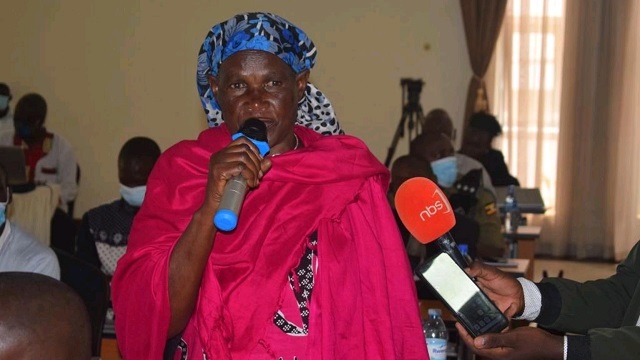
Hoima, Uganda | THE INDEPENDENT | Total Uganda has allowed families that were initially locked out of graveyards in the East African oil pipeline route to continue using the land in question, in the event that they lose their loved ones prior to compensation by the government.
The 1,443 km crude oil export pipeline will transport Uganda’s crude oil from Kabaale-Hoima, close to Lake Albert, traversing 296 kilometres in 10 districts and 25 sub-counties in Uganda. The earmarked districts in Uganda include Lwengo, Kyotera, Rakai, Sembabule, Hoima, Kakumiro, Kyankwanzi, Mubende, Gomba, and Kikuube. The pipeline is mapped to cross the Uganda–Tanzania border between Masaka and Bukoba to the Chongoleani peninsula near Tanga port in Tanzania.
But while the project activities take shape, the project affected families are struggling and unable to purchase land elsewhere even for the burial of their relatives yet New Plan Company Ltd, which was contracted by Total Uganda to map and evaluate the pipeline land blocked them from using the graveyards until the compensation process is completed.
Yisito Kayinga Muddu, the Network Coordinator for Community Transformation Foundation Network (COTFONE), says the pipeline affected people have cried for three years yet some were stopped from continuing to bury their dead in graveyards that were taken by the pipeline way. He adds that stopping people from burying in their graveyards before compensating them was a violation of people’s rights.
Muddu further says that there are several graveyards in the pipeline way in the ten districts where people have been stuck for some time.
Their outcry drew the attention of the district leaders, different Civil Society organisations (CSOs) and Total prompting immediate intervention. Now, Robert Nsubuga Lwanga, the Environmental and Social consultant for the East African Crude Oil Pipeline Project explains that they got concerned about the families following continued outcry prompting them to adjust for the good of the people.
The family of late Asuman Bamuduka in Kamutuuza village, in Lwengo rural sub-county which has so far the largest graveyard was among those struggling to bury their dead. Sarah Nalugooti, the caretaker of the 2-acre graveyard land that sits in the pipeline route says that a team from Total visited her on Thursday and gave her a document allowing her to continue burying the dead even before compensation. However, she wondered whether the dead who are buried in the graveyard after the compensation forms were signed will be considered for relocation and payment.
******
URN
 The Independent Uganda: You get the Truth we Pay the Price
The Independent Uganda: You get the Truth we Pay the Price



